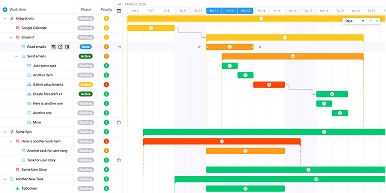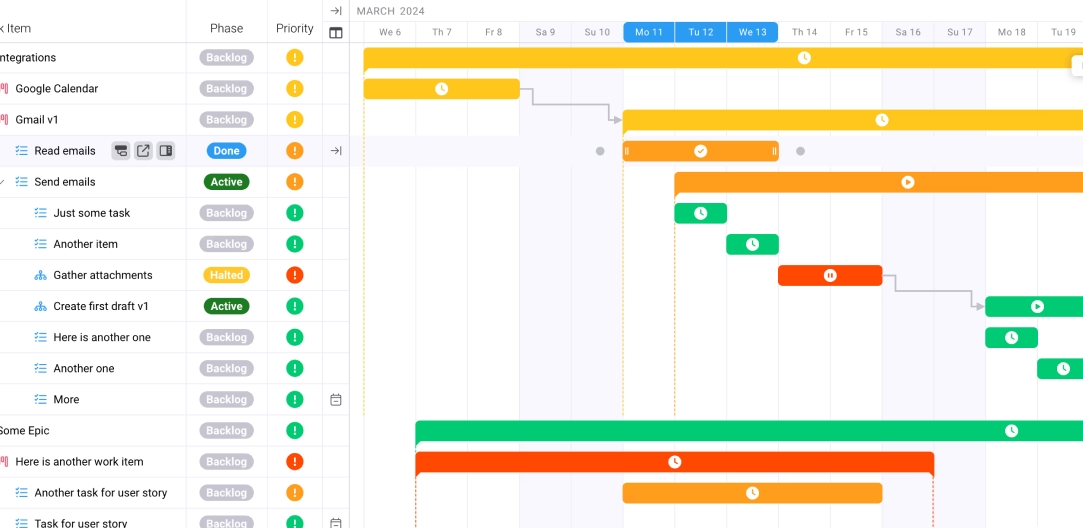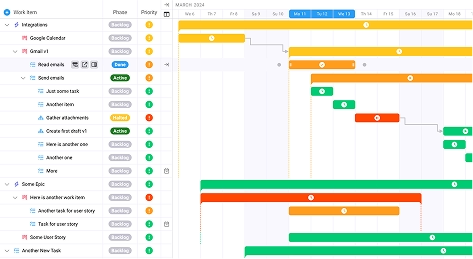
The 5 Best Agency Management Software Solutions for 2026
Key takeaways:
The modern agency landscape demands sophisticated agency management software that can handle the complexity of today's client-driven business environment. With the Agency Management Software Market size estimated at USD 4.30 billion in 2024 and expected to reach USD 4.60 billion in 2025, at a CAGR of 7.18% to reach USD 6.53 billion by 2030, choosing the right solution has never been more critical for agency success. As agencies navigate increasing client expectations, complex project workflows, and the need for profitability transparency, the demand for comprehensive agency management software continues to accelerate across all market segments.
The Current Challenge - What's Broken in Agency Operations
Agency operations face unprecedented complexity in 2026. The global Advertising Agency Management Software market was valued at USD 5.1 billion in 2023 and is projected to reach USD 18.3 billion by 2033, growing at a CAGR of 13.6%, highlighting the urgent need for integrated solutions that can address current operational challenges.
Modern agencies struggle with fragmented systems that create data silos, manual processes that drain productivity, and the inability to maintain real-time visibility into project profitability. 77% of employees say they are more productive when working from home, yet many agencies lack the digital infrastructure to support distributed teams effectively.
The challenge extends beyond simple project management to encompass resource allocation, financial tracking, client relationship management, and performance measurement. Traditional approaches that rely on spreadsheets and disconnected tools create inefficiencies that directly impact profit margins and client satisfaction.
AI stands out as a foundational amplifier accelerating progress across multiple business domains, yet many agencies have yet to harness these capabilities effectively within their operational workflows. The gap between technological possibility and practical implementation continues to widen, creating competitive disadvantages for agencies that fail to modernize their management systems.
The Strategic Framework - Evaluating Agency Management Solutions
Successful agency management software evaluation requires a comprehensive framework that addresses both immediate needs and future scalability. The global Agency Management Software market size was valued at approximately USD 2.5 billion in 2023 and is expected to reach USD 5.1 billion by 2032, reflecting a robust CAGR of 8.1%, indicating sustained investment in this category.
The evaluation framework must consider integration capabilities, user adoption potential, feature depth, scalability requirements, and total cost of ownership. The Professional Services Automation Market size is expected to reach USD 15.42 billion in 2025 and grow at a CAGR of 31.10% to reach USD 59.71 billion by 2030, making it essential to select solutions that can evolve with market demands.
Key evaluation criteria include native integrations with existing systems, real-time reporting capabilities, mobile accessibility, and the platform's ability to support multiple project methodologies. The framework should also assess vendor stability, customer support quality, and the solution's track record with similar agencies.
Financial considerations extend beyond initial licensing costs to include implementation time, training requirements, and ongoing maintenance. All-in-one work management platforms eliminate the need for multiple software subscriptions and reduce operational complexity, providing clearer total cost of ownership calculations.
Implementation Tactics - The 5 Best Solutions for 2026
1. Ravetree - The Comprehensive Leader
Ravetree leads the market with its comprehensive approach to agency management, offering seamless integration of project management, resource planning, time tracking, and billing capabilities. Customers report that it has a great user interface and is easy to use.
Ravetree's strength lies in its purpose-built design for creative agencies, offering customizable workflows that adapt to various project types and methodologies. The platform provides real-time visibility into project health, resource utilization, and financial performance through intuitive dashboards and automated reporting.
The solution excels in client portal functionality, enabling seamless collaboration while maintaining project transparency. Integration capabilities with accounting systems, marketing tools, and files storage systems create a unified ecosystem that eliminates data silos.
Perhaps best of all is Ravetree's outstanding customer support. Unlike other tools that either don't have good support, or charge a hefty fee, Ravetree offers all of its customers ongoing support at no extra cost.
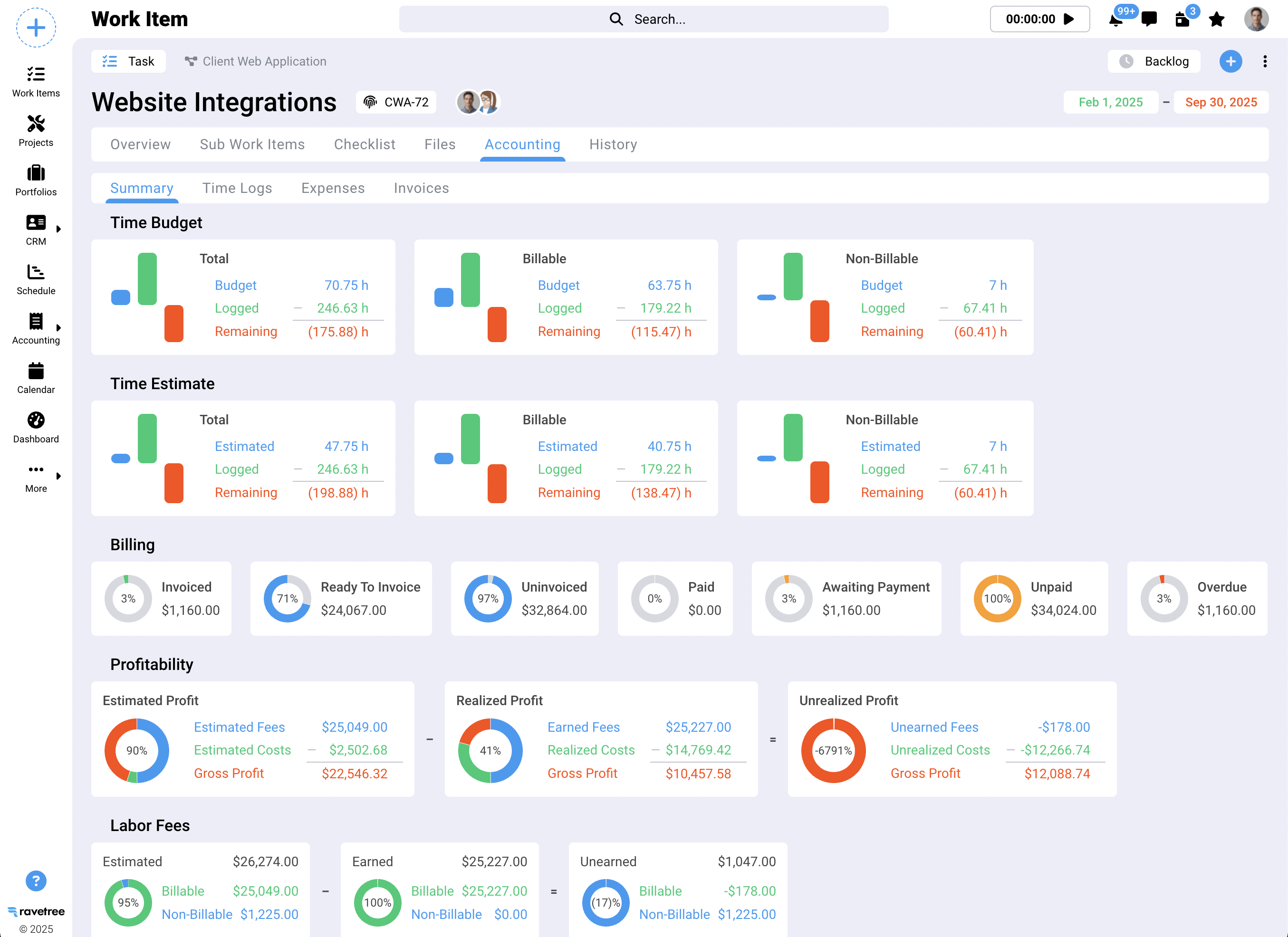
2. Kantata - The Enterprise Powerhouse
Kantata emerges as the preferred choice for larger agencies requiring enterprise-grade functionality and scalability. However, some users report that there is a steep learning curve and find it difficult to use.
Kantata provides robust integration capabilities and advanced analytics that support complex organizational structures.
The platform's advanced resource management capabilities include predictive analytics, skill-based scheduling, and real-time capacity planning. Kantata's financial management modules provide sophisticated project accounting, revenue recognition, and profitability analysis that meet enterprise requirements.
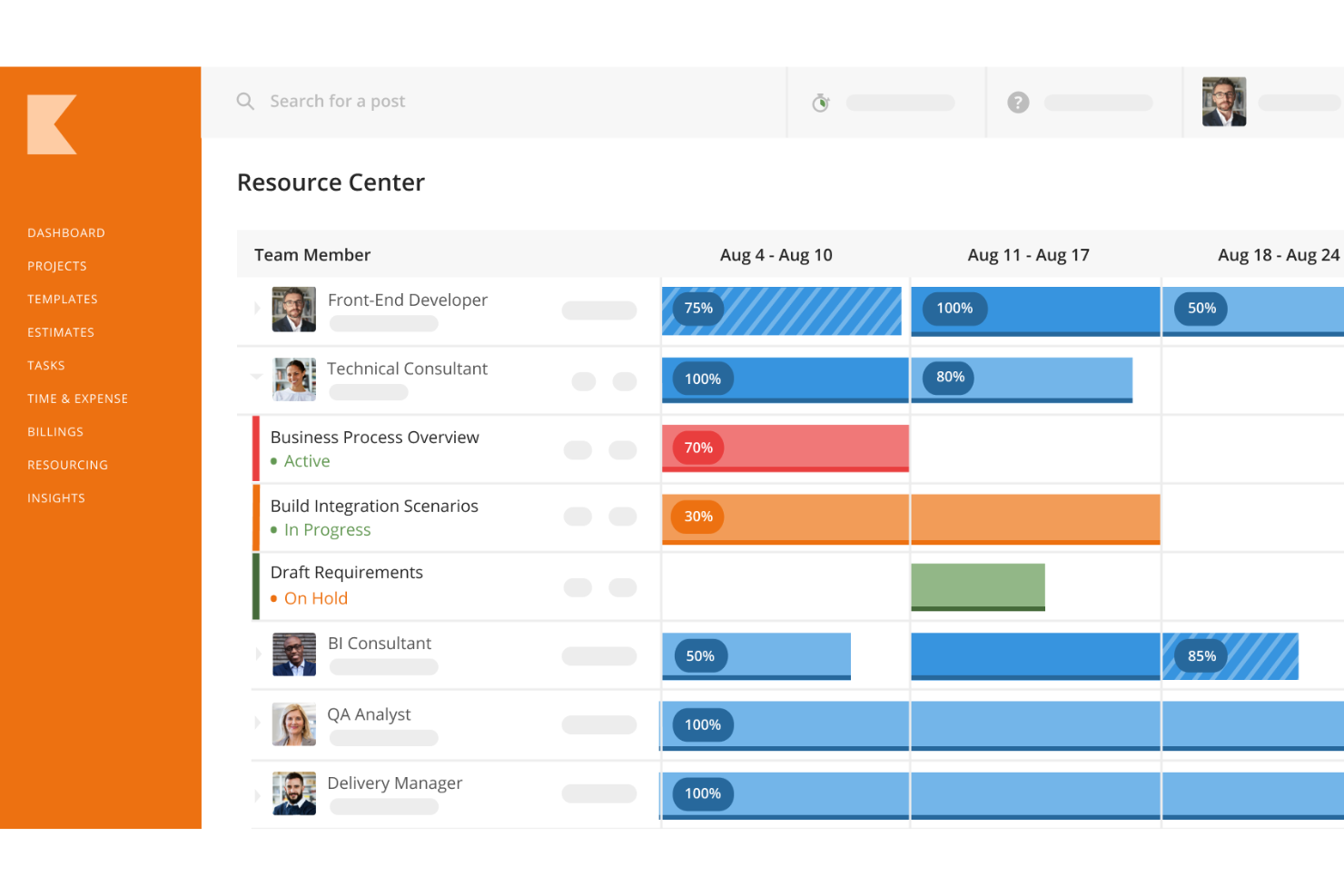
3. Workamajig - The Creative Specialist
Workamajig distinguishes itself through 30+ years of focus on creative agency workflows, offering deep industry expertise and specialized functionality. The platform provides comprehensive project management capabilities designed specifically for creative processes, from ideation through delivery.
The solution's integrated approach combines project planning, resource allocation, time tracking, and financial management within a unified interface. Workamajig's strength in media planning and creative workflow management makes it particularly valuable for full-service advertising agencies.
Native accounting functionality eliminates the need for separate financial systems, while customizable reporting provides insights into campaign performance, client profitability, and team productivity. The platform's client collaboration tools facilitate feedback collection and approval processes essential to creative work.
However, Workamajig is notorious for being clunky and difficult to use. It also requires a lengthy implementation process, which benefits consultants who promote it, but can severely hinder an agencies productivity.
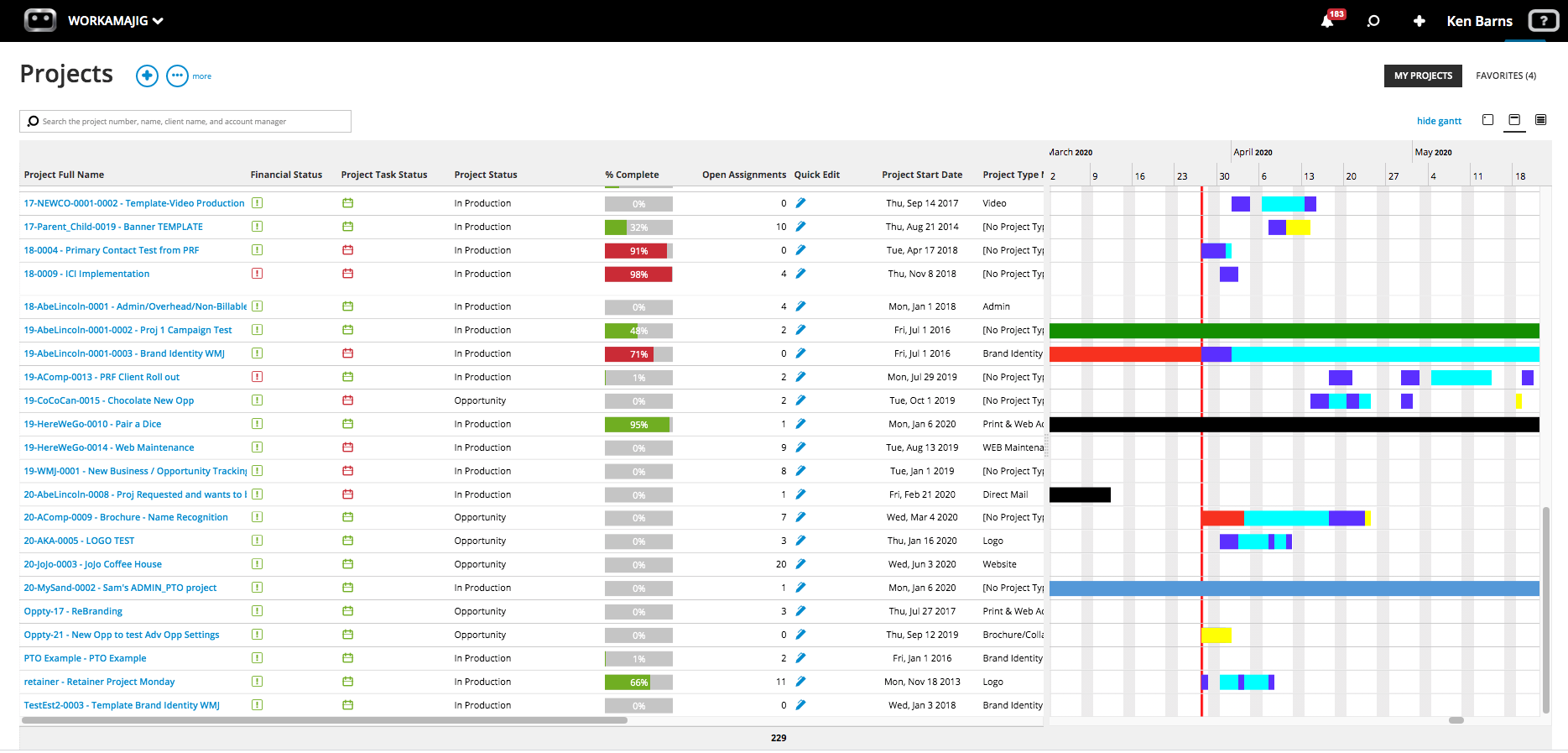
4. Accelo - The Automation Champion
Accelo focuses on workflow automation and process optimization, helping agencies reduce administrative overhead while improving client service delivery. The platform's strength lies in its ability to automate routine tasks, from time tracking to invoice generation, freeing teams to focus on high-value activities.
The solution provides comprehensive CRM functionality integrated with project workflows, enabling seamless transition from sales opportunity to project delivery. Accelo's automated communication features ensure consistent client engagement while reducing manual coordination efforts.
Advanced reporting capabilities provide real-time insights into utilization rates, project margins, and client satisfaction metrics. The platform's mobile accessibility supports distributed teams and field-based work requirements common in modern agency operations.
Accelo is also considered by some to be very difficult to use. This can be problematic when productivity suffers due to its steep learning curve.
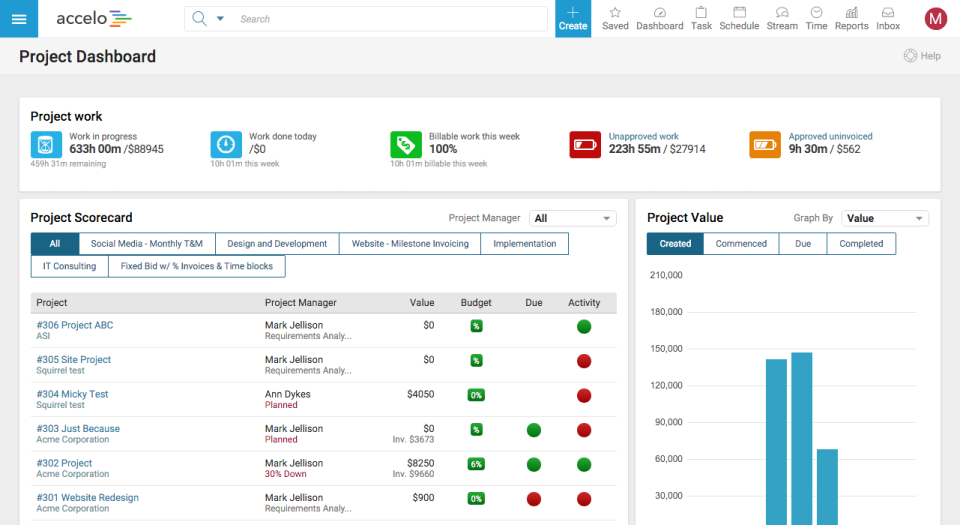
5. BigTime - The Time and Billing Expert
BigTime excels in time and expense management, providing sophisticated tracking and billing capabilities essential for professional services.
The platform's strength in DCAA compliance makes it particularly valuable for agencies serving government clients or working on regulated projects. Advanced time tracking features include automated timers, mobile capture, and intelligent expense categorization.
BigTime's project accounting capabilities provide detailed cost tracking, budget monitoring, and profitability analysis. Integration with popular accounting systems streamlines financial workflows while maintaining accuracy in billable hour capture and client invoicing.
Unfortunately, some users report that BigTime can be difficult to use and has lots of bugs.
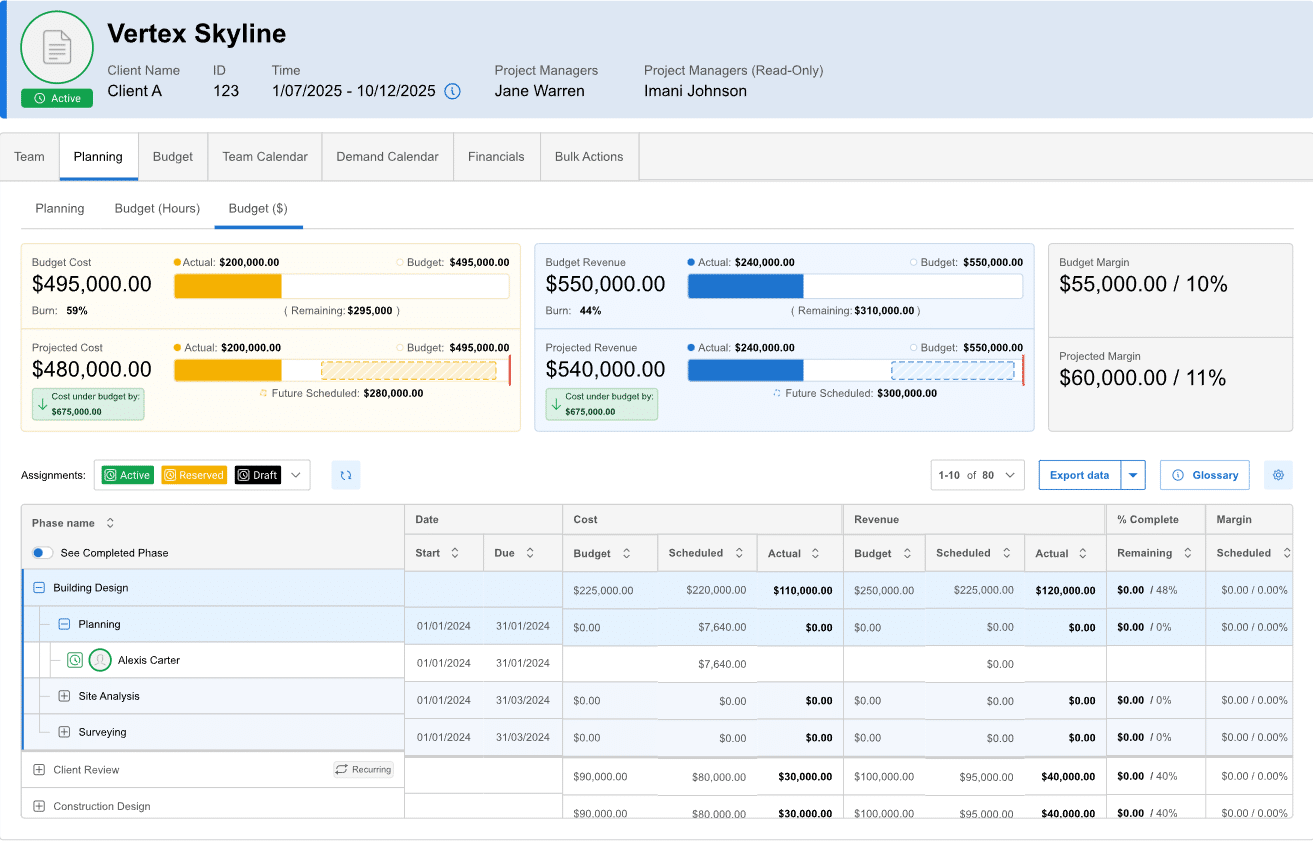
Measuring Success - Key Performance Indicators
Successful agency management software implementation requires careful measurement of key performance indicators that align with business objectives. Agencies using automation and efficient workflows can achieve 25% better margins, making it essential to track metrics that demonstrate operational improvement.
Primary KPIs include project delivery time, resource utilization rates, client satisfaction scores, and profit margins per project. Advanced metrics encompass invoice processing time, proposal win rates, and employee productivity measures that provide deeper insights into operational efficiency.
Regular measurement intervals should include weekly operational reviews, monthly financial assessments, and quarterly strategic evaluations. Benchmark comparisons against industry standards help identify areas for continued improvement and validate software selection decisions.
Agencies prioritizing specialized project management tools over generic solutions see 40% better project delivery outcomes, emphasizing the importance of selecting purpose-built solutions that address specific industry requirements.
Future Considerations - Emerging Trends and Next Steps
The agency management software landscape continues evolving rapidly, with artificial intelligence, machine learning, and predictive analytics becoming standard features. Agencies must consider platforms that can adapt to emerging technologies while maintaining stability in core operational functions.
Integration capabilities will become increasingly important as agencies adopt specialized tools for social media management, content creation, and performance analytics. The ability to create unified workflows across diverse technology stacks will differentiate leading solutions from basic project management tools.
Mobile-first design and remote collaboration features will remain critical as distributed work models become permanent fixtures in agency operations. Platforms that provide consistent experiences across devices and locations will better support modern team structures and client expectations.
Security and compliance considerations will intensify as data protection regulations expand globally. Agency management software must provide robust security features, audit trails, and compliance reporting to meet evolving regulatory requirements.
Conclusion
The agency management software landscape in 2026 offers sophisticated solutions that can transform operational efficiency and drive measurable business results. The 5 Best Agency Management Software Solutions for 2026 - Ravetree, Kantata, Workamajig, Accelo, and BigTime - each provide unique strengths that address different agency needs and requirements.
Success depends on thorough evaluation of current pain points, future growth plans, and team capabilities. Agencies that invest in comprehensive agency management software positioned for long-term scalability will gain competitive advantages through improved efficiency, better client relationships, and enhanced profitability. The digital transformation imperative makes software selection a critical strategic decision that impacts every aspect of agency operations and client delivery.
Frequently Asked Questions
What is agency management software?
Agency management software is a comprehensive platform that integrates project management, resource planning, time tracking, billing, and client relationship management specifically designed for creative agencies and professional services firms.
How much does agency management software cost?
Pricing varies significantly based on features, user count, and deployment options, typically ranging from $25-100+ per user per month for professional solutions with enterprise options requiring custom pricing.
What features should I prioritize when selecting agency management software?
Focus on integrated time tracking, project profitability analysis, resource allocation capabilities, automated billing, client collaboration tools, and robust reporting functionality tailored to agency workflows.
How long does implementation typically take?
Implementation timelines range from 2-12 weeks depending on solution complexity, data migration requirements, integration needs, and team size, with dedicated onboarding support accelerating adoption.
Can agency management software integrate with existing tools?
Modern solutions provide extensive integration capabilities with accounting systems, CRM platforms, marketing tools, and productivity applications through APIs and pre-built connectors.
What are the benefits of cloud-based vs. on-premise solutions?
Cloud-based solutions offer automatic updates, scalability, remote access, and lower upfront costs, while on-premise options provide greater control, customization, and data security for sensitive environments.
How do I measure ROI from agency management software?
Track metrics including project delivery time, resource utilization rates, billing accuracy, client satisfaction scores, and profit margins to quantify operational improvements and financial impact.
What support options are available for agency management software?
Leading vendors provide multiple support channels including live chat, phone support, email assistance, knowledge bases, video tutorials, webinars, and dedicated customer success managers.


